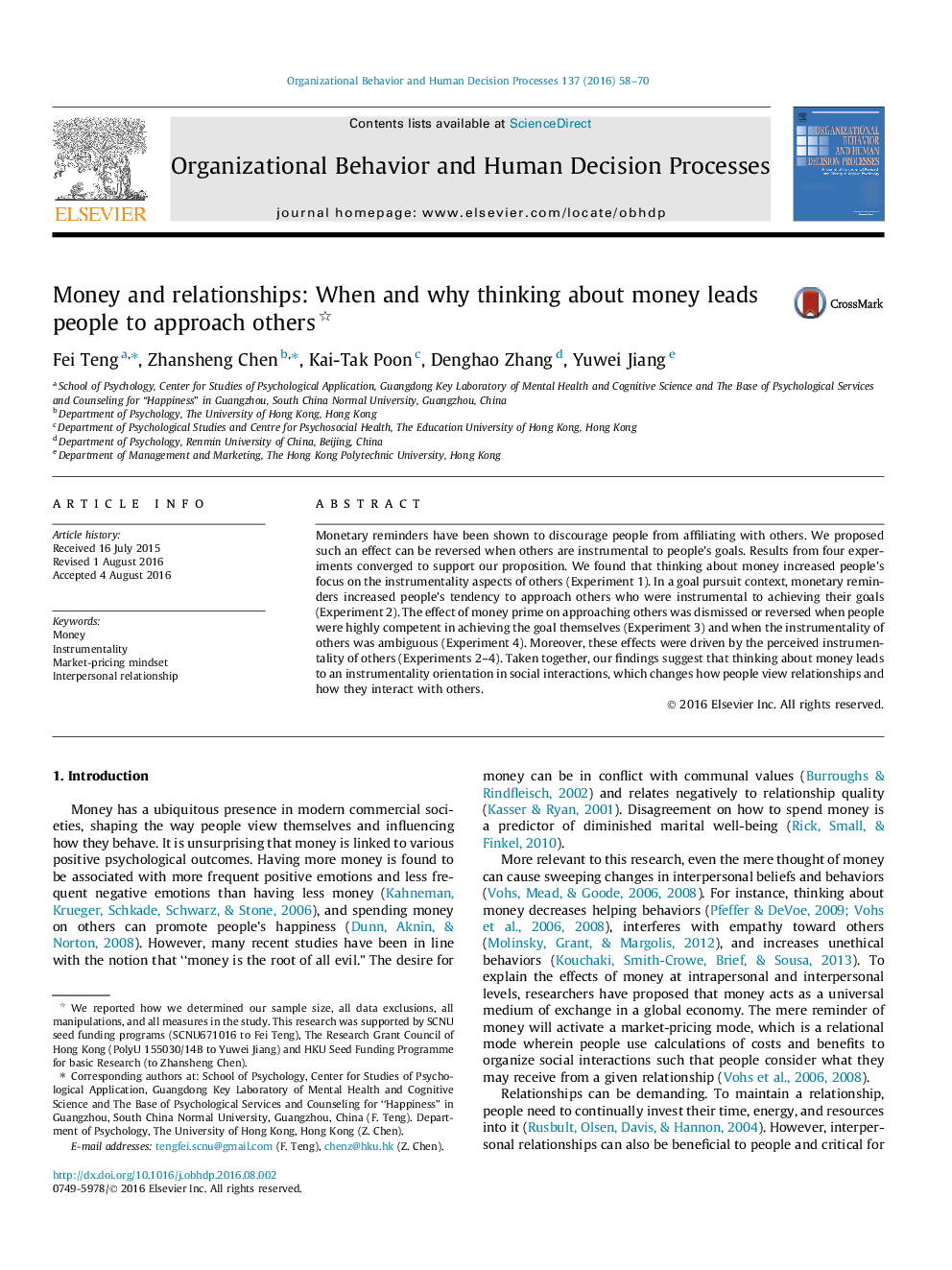| Article ID | Journal | Published Year | Pages | File Type |
|---|---|---|---|---|
| 888461 | Organizational Behavior and Human Decision Processes | 2016 | 13 Pages |
•Money increases people’s focus on the instrumental aspects of others.•Money increases people’s approach of others who are instrumental for their goals.•Money’s effect on instrumental-approach is moderated by self-perceived competence.
Monetary reminders have been shown to discourage people from affiliating with others. We proposed such an effect can be reversed when others are instrumental to people’s goals. Results from four experiments converged to support our proposition. We found that thinking about money increased people’s focus on the instrumentality aspects of others (Experiment 1). In a goal pursuit context, monetary reminders increased people’s tendency to approach others who were instrumental to achieving their goals (Experiment 2). The effect of money prime on approaching others was dismissed or reversed when people were highly competent in achieving the goal themselves (Experiment 3) and when the instrumentality of others was ambiguous (Experiment 4). Moreover, these effects were driven by the perceived instrumentality of others (Experiments 2–4). Taken together, our findings suggest that thinking about money leads to an instrumentality orientation in social interactions, which changes how people view relationships and how they interact with others.
